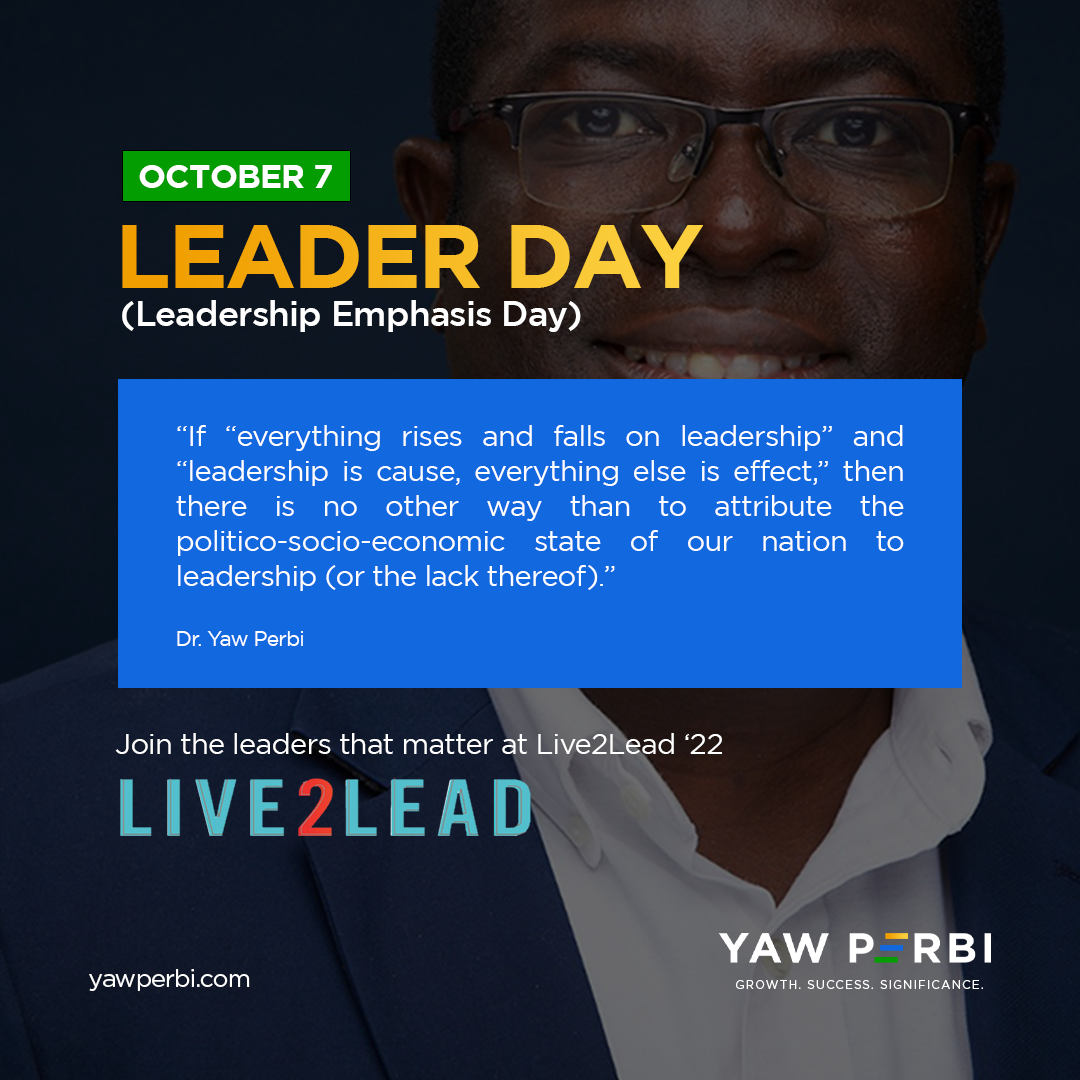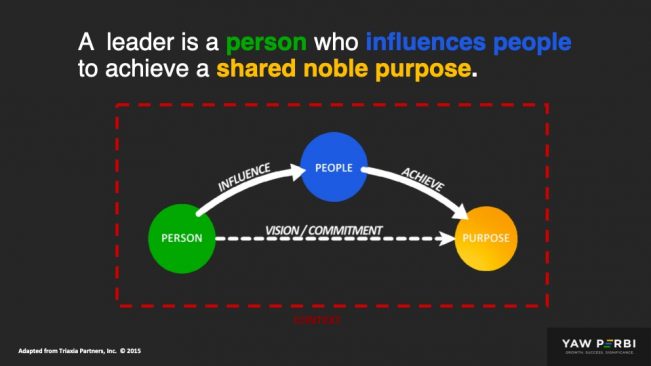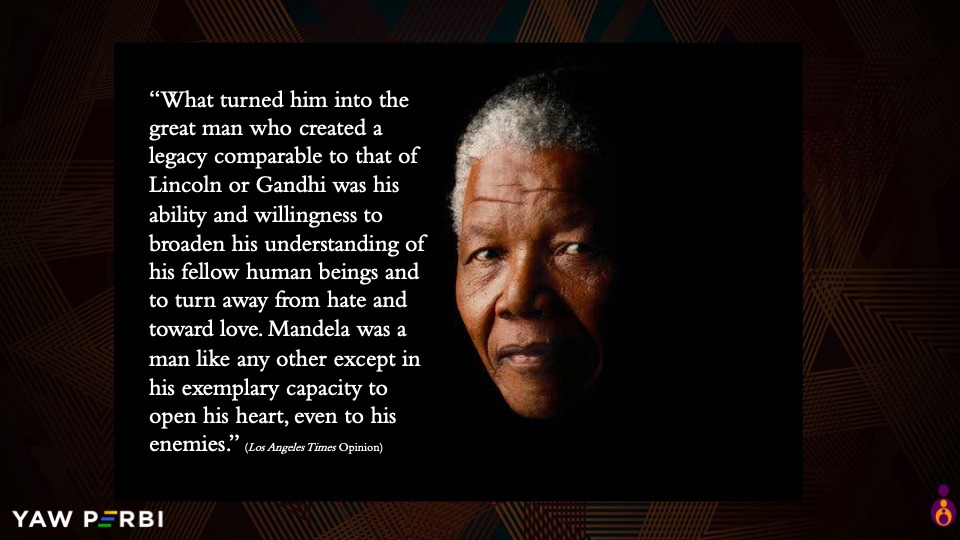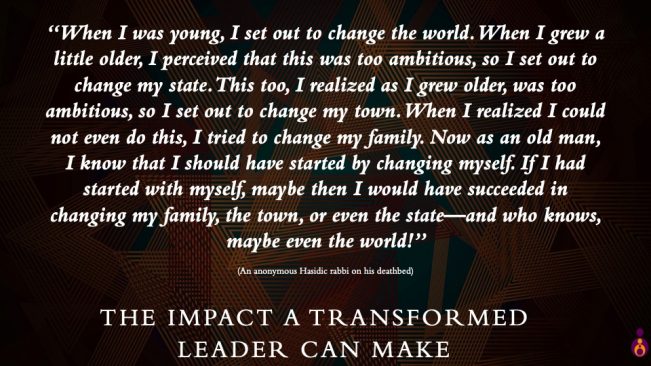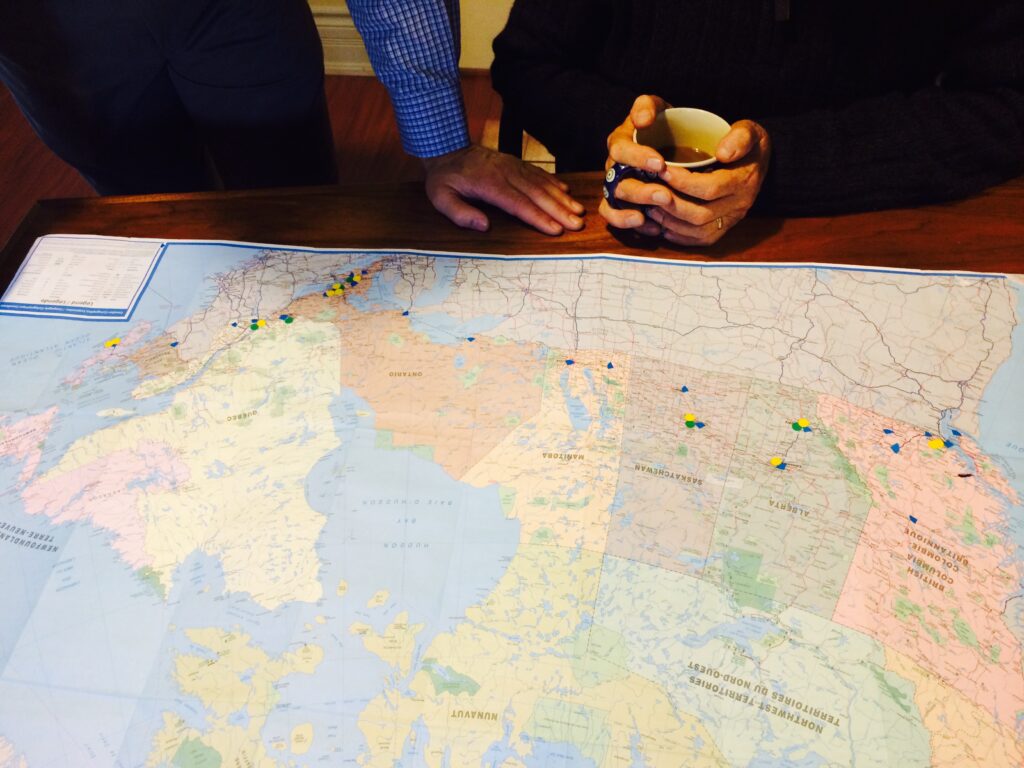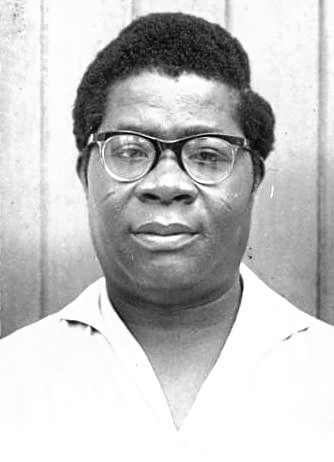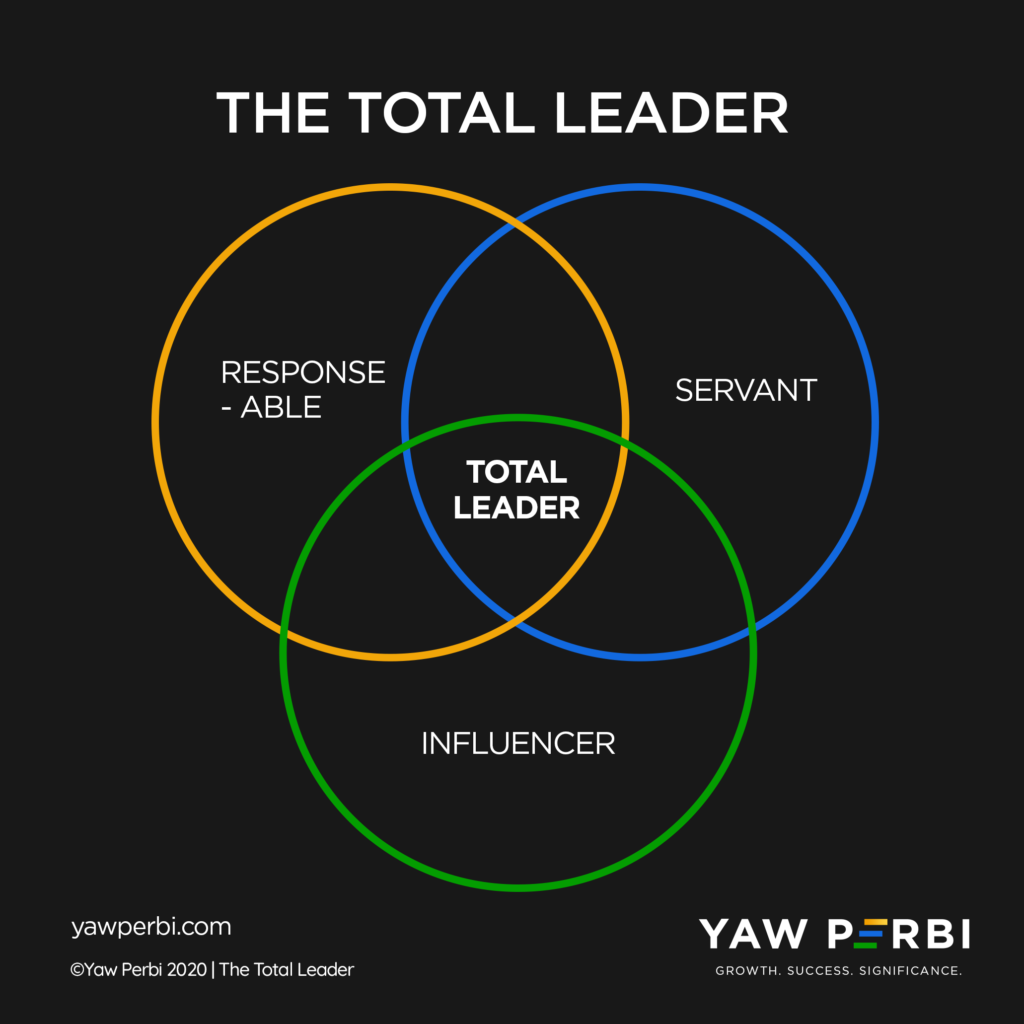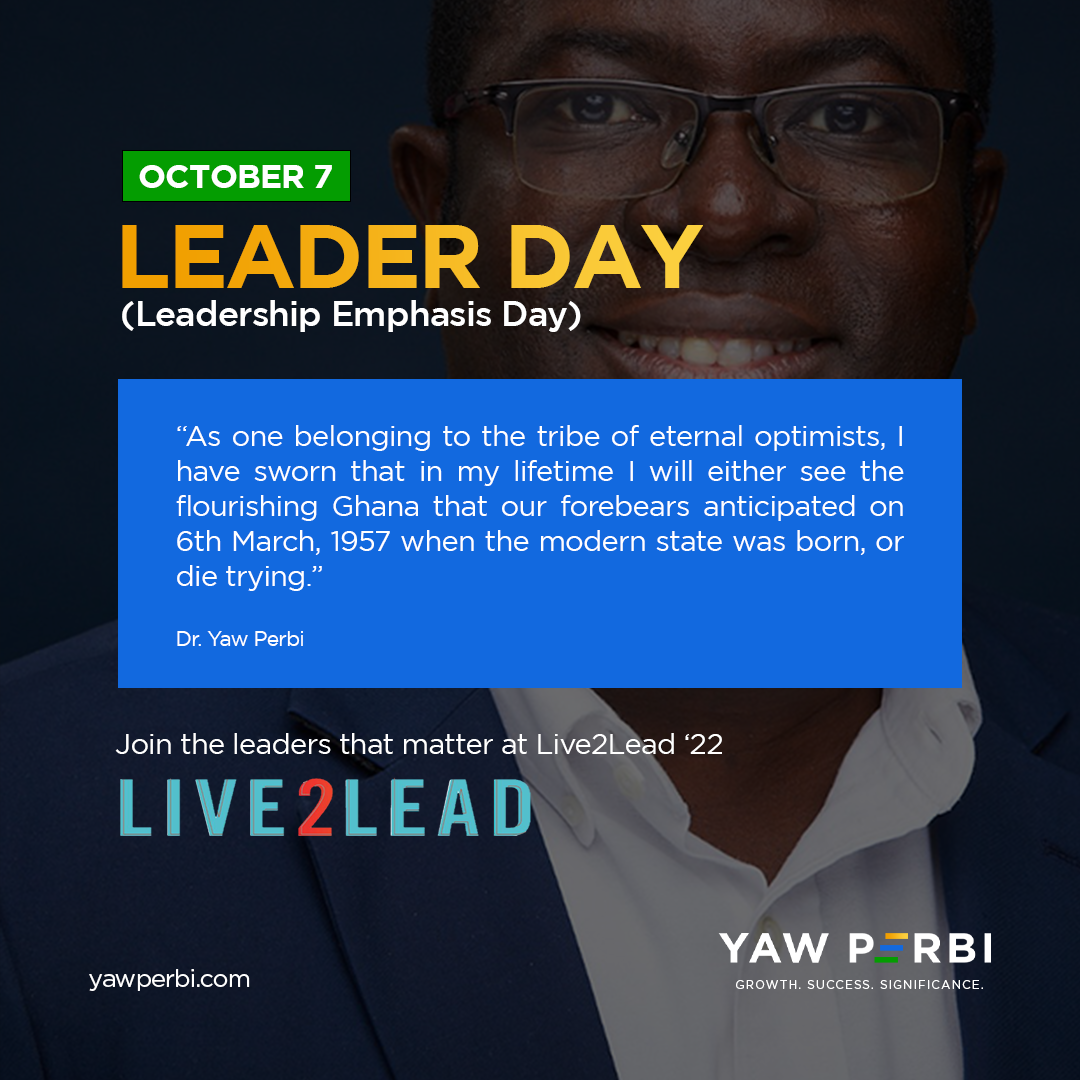
Leader Day, October Day
The world is not in a good place. Leadership is the cause. And when it comes to Ghana’s situation in particular, I have personally been shocked at the number of C-level leaders I have interacted with that have either completely lost hope in the future of the country or nearly have. “How did we get here???” one CEO of a major bank asked me via text (yes, with three question marks).
If “everything rises and falls on leadership” and “leadership is cause, everything else is effect,” then there is no other way than to attribute the politico-socio-economic state of our nation to leadership (or the lack thereof). In the same way, if there is any one thing that will elevate the conversation, and the nation with it, it is leadership.
DO OR DIE TRYING
As one belonging to the tribe of eternal optimists, I have sworn that in my lifetime I will either see the flourishing Ghana that our forebears anticipated on 6th March, 1957 when the modern state was born, or die trying. When the nascent nation was named ‘Ghana,’ our great grandparents were hopeful it would reflect the prosperity of the old Ghana empire, hence our new name (from Gold Coast). Oh, it bears repeating: our tribe of eternal optimists will see to a prosperous Ghana in our lifetime or die trying.
“I HAVE A DREAM, I HAVE A DREAM…”
Every true leader has a dream they passionately pursue with their people. I realize there is a day dedicated to almost every cause under the sun and pretty much each of the Sustainable Development Goals (SDGs)—women’s day, water day, literacy day, friendship day, founders day … even toilet day. Yet the one thing that causes each of these matters to rise or fall has no such day dedicated to it to elevate and emphasize it. Even then, is a day enough? Surely not; but it is a good catalyst for the remaining three hundred and sixty four (or five) days.
My fellow Maxwell-trained and certified collaborators in Ghana and I have a dream that ultimately the first Friday of October each year will become universally known as LEADER DAY. There is nothing special about the first Friday in October per se except that consistently for about a decade now, our mentor and leadership expert, John C. Maxwell, has been gathering some of the best leadership minds and hearts on the planet to speak to the issue, and we might as well leverage the opportunity rather than reinvent the wheel. Live2Lead is the name of that event. The name says it all, that’s our purpose on earth: We live to lead.
Gwen Addo, the pulchritudinous CEO of the Hair Centre and speaker at Live2Lead Ghana ‘22 affirms this vision: “I also pray your dream comes true and October 7 becomes a “leadership day” or perhaps October becomes a “leadership month.”” She continues, “leadership is close to my heart … and why not dream it bigger than just a day.”
You and I know the dearth of leadership in our country. We, Maxwell certified trainers who are Ghanaian, are aiming to get 2,000 leaders at all levels to benefit from the LIVE simulcast from Atlanta. We will organize local content for our context first, sandwiching the global feed. You would want to be with Patrick Awuah (Founder & CEO, Ashesi University), Patricia Obo-Nai (CEO, Vodafone), Uncle Ebo Whyte (CEO, Roverman Productions), Gwen Gyimah Addo (CEO, The Hair Senta), Kathleen Addo (Chairperson, National Council for Civic Education) and Kwamina Asomaning (CEO, Stanbic Bank). The core issue on the table this time, or shall I say by the fireside, is “Leading with Integrity & Inspiring Hope, for the Common Good.”
STRATEGY
On October 7, we shall convene 2,000 Ghanaian leaders online. At least half of them will be from 100 companies, institutions and organizations which would send 10 of their leaders to Live2Lead as their investment in themselves as well as boldly staking their claim in the prosperity of Ghana by raising the leadership lid in the country, one company at a time. All these companies will be listed as patrons in the event handbook, website and social media (in alphabetical order).
The other half will be made up of executive leaders from the private sector, the establishment leaders (public service) and emerging leaders from our schools and universities, representing the next generation. Companies, institutions and organizations which want to go beyond patron status will be given opportunity to sponsor the establishment and emerging leaders in exchange for significant air time and eyeballs.
This 2,000 is only for starters; we shall double in 2023; and double again and again till at least 2% of all leaders in Ghana are connected to this Live2Lead tribe of learners who lead and leaders who learn. That is the exact critical mass needed to see a self-propagating movement of leaders worth following in Ghana: 2% of the leader population.
CONCLUSION
The feedback from the ground as I have gone around is damning. Ruinous to the extent that although the theme we initially chose for our local content is ‘Leading with Integrity for the Common Good,’ we’ve had to come up with a conjoint theme of HOPE. Our people need hope. Leaders are brokers of hope, thus when they themselves are broken to the extent that they have no hope, what shall the rest of the people do?
Arise Ghanaian leaders!, established and emerging ones alike. We are better than this. Yet perhaps we are expecting leadership behaviours, values and attitudes that we haven’t first trained into people. Since we Live 2 Lead (that’s our purpose) let’s then Live 2 Learn (that’s the process) so we can all lead better and all make our nation great and strong. When the leader gets better, everyone and everything else does too. So let’s all show up!
One day in October, for starters. Just one day but who knows? Perhaps ‘October Day’ will in my grandchildren’s day be as well-known as ‘May Day’ is today. And for even better reasons, leadership-wise.
PS.
An event is not enough for sustained transformation thus there are leadership development and training pathways that will later be shared as a follow-up process between October 7 and the next Leader Day a year hence.

From One Legendary Leader in the Evening to Another One in the Morning–a Tribute to Archbishop Desmond Tutu

The beloved late Desmond Tutu (photo: Yaw Perbi does not own the rights to the picture and owner is unknown).
I was emailed this incredible tribute by a mentor of mine in the Lausanne Movement, Dr. Michael Cassidy, to his late friend Archbishop Desmond Tutu, that I just had to share as a student of leadership. What impresses you most? May many Cassidies and Tutus be raised in our generation!
Tribute to Archbishop Desmond Tutu
from
Michael Cassidy
Founder, African Enterprise
Honorary Chair, The Lausanne Movement
Archbishop Desmond Tutu, one of South Africa’s greatest ever luminaries, both ecclesiastical & national, has gone to be with His Lord. People from every race, sector & background will mourn his passing, because he was a man for all who stood without fear or favour for the human rights of all.
Perhaps it is as an almost unequalled African champion for human rights that he will be most fondly & universally remembered. And it was for this that he justly became a Nobel Laureate.
In South Africa his immensely courageous fight against Apartheid earned him the fearsome opprobrium of the National Party Government, the settled hostility of most whites, but the thankful adoration of all people of colour, as well as more liberal whites. In fact, from the church, his voice during those dread years, was by far the most audible, & his persona by far the most visible. This audibility & visibility constituted a true achievement of note & contributed powerfully to the final fall of Apartheid.
As far as we were concerned in African Enterprise, Desmond was a friend to our work & contributed powerfully to conferences we organized or helped organize such as SACLA (South African Christian Leadership Assembly), the NIR (National Initiative for Reconciliation), & The Rustenburg Conference which represented the whole church spectrum & spoke to the whole range of political leadership from far left to far right.
At a personal level I also counted Desmond a good friend. He commended numbers of my books, including my recent Memoirs, & wrote the Foreword to my book The Politics of Love. We also shared in significant ministry together in African Enterprise’s city-wide mission to Kigali, Rwanda, a year after the genocide. That was very moving. I especially remember ministering with him in terrifying cells of pitifully jammed together prisoners. And then being with him as he collapsed in tears in one church filled with skeletal remains of murdered victims. There I saw his profound compassion poured out. Even as we tried to hold him up. Such shared moments one can never forget, culminating in our sharing the evangelistic preaching to a packed stadium in our final service.
And all this Desmond could do in spite of the fact that we had strong theological differences on certain issues such as Universalism & Gay Marriage. But he never allowed those to damage our friendship. And neither did I.
Thankfully in our recently produced documentary, The Threatened Miracle of South Africa’s Democracy, Desmond features strongly, both during the Apartheid years, but even afterwards when he severely scolded the ANC of Zuma’s time saying, “I’m warning you; I’m WARNING you; you are a disgrace!” No one else had that truly prophetic courage, credibility & ability to speak to all sides, all the time, AND be heard!
Yes, we will miss him… “the Arch”, as he was affectionately known, even by the media. But his legacy of prophetic witness will live on wherever South Africa’s story is told, & wherever racial justice & the Human Rights struggle are in purview.
To his dear, always supportive wife Leah, to his family, to his ministry colleagues, especially in the Anglican Church, we in African Enterprise world-wide extend our deepest sympathies, & assurances of heart-felt prayers at this time.
Dear Desmond — Beloved Arch — thank you for blessing us with your life. Au revoir. We will see you in the Morning.
Michael Cassidy
Founder of African Enterprise
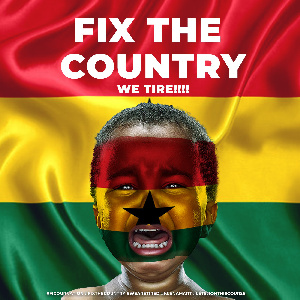
What #FixTheCountry and #FixYourself Both Got Wrong
Earlier this year, my homeland Ghana was in the news again, trending on social media for all the wrong reasons. Citizens were tired of apparently failed campaign promises and mounting socioeconomic challenges from illegal mining destroying our ecology to pot holes, no, man holes, in our streets. All of these complaints were bundled together in a #FixTheCountry campaign that made a dent in Twittersphere. Some ill-advised government sympathizers then began a #FixYourself counter-tweet, which only added insult to injury. A much more compassionate and smarter response, which might’ve calmed nerves, would’ve been #LetUsFixItTogether but be that as it may, as a student of leadership let me show you how both sides got it wrong in the first place.
LEADER DEFINED
There are officially over 360 definitions of leadership. The simplest yet most profound one that makes the point I seek is this: a leader is a Person who influences People to achieve a shared noble Purpose. Although there are three ‘P’ players in this equation, the tendency for most, and not just Ghanaians, is to focus on the third ‘P’ (Purpose), in this case the country that needs fixing. That makes sense because it is often what pinches and the thing we would’ve been sweet-talked about during the animated political campaigning prior to elections. So the citizenry said #FixThePurpose and what some government functionaries did was to then shift what needed fixing to the second ‘P,’ the people i.e. #FixThePeople.
As I prepared to speak to alumni of the Central Leadership Programme a couple of weeks ago on ‘The Impact a Transformed Leader Can Make‘ it dawned upon me heavily that while both sides of the hashtags might bee sincere, they are both sincerely wrong. The most important ‘P’ that fixes the other two ‘Ps’ is the Person of a leader! We can cry #FixTheCountry all year long and hear a minor counter-chorus of #FixYourself all year round but until the primary hashtag and passionate focus becomes #FixTheLeaders, it’s all a waste of time, energy and a whole lot of other scarce resources!
PRINCIPLES AT WORK
You might not like what I’m saying, or even not believe in it, but the thing with principles is that they are timeless, universal truths that don’t care a hoot what you and I value. As the famous director of the 1956 epic movie The Ten Commandments said, we cannot break commandments, we can only break ourselves against them. Until our leaders are transformed, the people will not be transformed, neither will the situations that need transformation. In other words, until and unless the leaders are fixed, the people will not be fixed and the problems will not be fixed. It doesn’t matter how sincere and passionate we are about the latter two, we would ironically only be breaking ourselves against leadership principles, rather than fixing anything.
In transformational leadership, the following principles hold true:
Principle #1: Transformational Leaders are transformed first, then their community (from family to town/city to district to region to country and continent)
Principle #2: The Person (of a Leader) gets fixed first, then the People, before the Purpose
Principle #3: Only deeply transformed leaders can deeply transform society.
PORTRAITS OF THE POINT
In my talk, I shared examples of the impact transformed leaders have had on society, irrespective of the era, whether 2,000 years ago like Zacchaeus, 200 years ago like William Wilberforce or barely 20 years ago like Nelson Mandela. When Zacchaeus, the short and filthy rich chief tax collector, encountered the rabbi Jesus Christ, he was transformed. That’s what led to his unforced famous declaration: “Look, Lord! Here and now I give half of my possessions to the poor, and if I have cheated anybody out of anything, I will pay back four times the amount.”
What do you suppose was Zacchaeus’ impact as a transformed tax leader (say, as the head of the Ghana Revenue Authority)? If every African politician since 1957 said and did similarly, not only will we hardly have the poor amongst us, our socioeconomic indicators will drastically improve overnight as Swiss banks and vaults are emptied swiftly! That’s the impact a transformed leader (#FixedLeader) can make in transforming a people and a context. This brings to the freedom two more faith-based transformational principles: #4 No one can truly encounter the transformational Jesus and not be transformed and #5 No one can be truly transformed by the transformational Jesus and not transform society.
These principles are again exhibited in the modern story of William Wilberforce and the contemporary biography of Nelson Mandela. You might want to check out the video of the said talk to appreciate how the transformative societal impact of both, also came from the fountain of their personal transformation as leaders. For Mandela, see the quote below that summarizes well his transformation and transformative leadership:
Former South African President Thabo Mbeki, who stepped into the big shoes of Mandela, makes the point for me about fixing leaders first to get the product in society we want in this video. He challenges incumbent African presidents as follows: for whatever kind of Africa we want, the question is, “what sort of leadership do you produce to get that kind of result?”
It’s easy to be impressed by Wilberforce’s purpose, which he influenced thousands to share in: ““God almighty has set before me two great objects: the abolition of the slave trade and the reformation of manners.” But what you might not know is that his wasn’t always a noble story. Although young and gifted, his biographer Eric Metaxas wondered, “But to what would he rise? For beyond making it to Parliament and succeeding there …he had no dreams. He was ambitious and he was talented, but he was also directionless.” Years later Wilberforce himself remarked, “The first years I was in Parliament I did nothing—nothing to any purpose. My own distinction was my darling object.” What changed everything and began a life-long pursuit of the abolition of the slave trade and emancipation was how all that pre-occupation with himself, his status and ‘success’ began to change in 1784 (at 25) when he started to explore the religious faith of his youth. Again, the transformed Person he became, influenced a People to transform, and together they transformed and reformed the world!
CONCLUSION
Citizens are powerful. “Power to the people,” was the mantra in the revolutionary days of the 1980s in Ghana. I was a only a lad but I still remember. And it is true. But leadership is incredibly important, as everything rises and falls on it. True, citizens (People) can use their thumbs to vote leaders (Persons) in and out of office and press their demands on them. True, citizens can campaign ad nauseam about the plights and dreams (Purpose) that matter. All I’m asking is that if principles are true and cannot be broken, then our strongest and loudest campaign should be #FixTheLeaders. If we do, the people will be fixed (#FixYourself) and so will the country (#FixTheCountry). There’s no other way around this. If we do not go this route, come 100 years from now, those two #FixTheCountry and #FixYourself hashtags will still be trending. We would only have have successfully recycled unfixed leaders of fixed colours every four years while the country itself remains unfixed. Leaders must fix themselves first, then serve and influence the people to be fixed and together, fix the country.
PS.
As someone with an advanced degree in leadership and being a leadership practitioner across various industries and on every continent, I do reckon that this issue is nuanced. It takes an entire ‘leadership ecosystem’ and multi-dimensional, multi-directional processes. Yes, I agree there has to be 360 degree leadership. We can play around with all the possible permutations there are but we fool ourselves without this primary transformed/transformational leader —> transforming people —> transformed society piece. It is akin to what will be referred to in Chemistry as ‘the rate determining step.’ If that (#FixTheLeaders) doesn’t happen and in ample time and measure, we will still be arguing about #FixTheCountry and #FixYourself 100 years hence. We’re in a fix (pun intended).
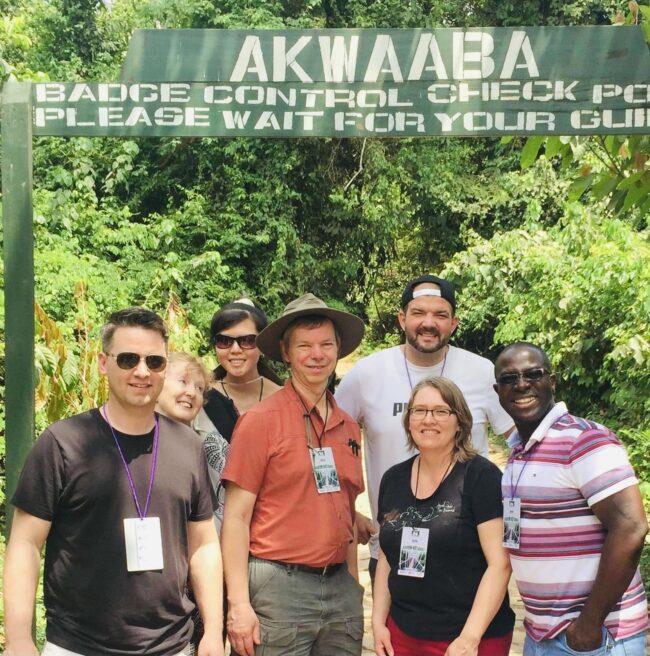
When to Leave the Dance Floor.

Visiting the Kakum National Park in Ghana with my senior leaders, hailing from six different cities in Canada. Fun fact: the famous canopy walk at this park was built by two Canadian engineers, assisted by a Ghanaian crew.
This month I clocked eight years as president and CEO of a strategic Canadian charity in the international education space. I was headhunted for the role and felt privileged to be the first ever black president of our almost 40 years old organization. We provide hospitality, faith exploration opportunities and leadership development for the over half a million international students in Canada to be empowered to impact the world. I’ve had the privilege of leading about 90 incredible staff across 23 cities from coast to coast–Canada is the second widest country on earth after Russia–and oh yes, we have a staff family serving in Australia too.
SO WHY ARE YOU LEAVING?
In the first couple of years under my leadership, we grew by about 70% (short of my 100% goal) in new staff and new fields, expanding into about a dozen new cities, extending coast to coast for the first time in the organization’s history. There’ve been many more exciting things that have happened, including seeing such a rich diversification of our staff to about 15 nationalities. One of my greatest joys has been to see former international students becoming leaders of our work in cities, regionally and even in senior leadership. Every quarter we chronicle story upon story of incredible impact on students/scholars by staff and volunteers and impact of our students and alumni around the world, from Australia to Zimbabwe! We’ve seen an organization little known organization gain significant recognition in the international education space in Canada and abroad. Together with the leaders and staff, we worked to move organizational health from OK to healthy to flourishing (as independently adjudged by a third party firm). When I hear of CEO versus board tussles I cringe and thank God that this has been far from my experience. I’ve had such a congenial and synergistic relationship with the board, which has rotated through four chairpersons over the period I’ve been president.
If everything is going as well as I claim, then why am I leaving? My work is done! I believe every leader has a particular purpose to a particular people in a particular place for a particular period and when your work is done, you pack up and go, leaving the place and people better than you found them. I had initially been approached for this role in late 2012 and had laughed it off, especially since I was not only running The HuD Group, which had just received charitable status in Canada, but was also doubling as interim pastor for the Montreal Chinese Alliance Grace Church. Eventually I did take the five-hour flight from Montreal to Calgary to interview with the board. When Anyele and I prayerfully decided to make some adjustments and finally accept the board’s offer, I specifically stated that I planned to do this presidency for three to five years. In fact, I ensured it was clearly spelt out in the documentation. Well, guess what? It’s been three plus five years. It’s time to go!
MUSIC AND DANCING WITH GRAPHS
It is time to leave because my particular purpose to a particular people in this particular place for this particular period is done. As a wise saying in Africa goes, you leave the dance floor while people are still enjoying your dance. What Africans say so well idiomatically, Westerners tend to express graphically. So below is a pictorial illustration of what I’m saying.

Just before the peak is when your dance is still being enjoyed. That’s when you leave the dance floor.
While the above graph refers to the life cycle of any organization per se, it is similar to the organizational leader’s cycle too. Don’t wait to peak, let alone to get into decline and eventual death. That is not great for your leadership but even worse, not good for an organization you supposedly believe in (and even love). Just before the peak is when you collaborate with the ‘DJ’ (stakeholders) to start another song i.e. launch another initiative, start a new programme, launch a new organization etc. Just before the peak is when your dance is still being enjoyed so you either start another song or gracefully leave the dance floor!
By the time one hits the peak itself, you are stretching it. Folks are beginning to get tired of your moves. After the peak, it’s all downhill, babe! And no matter how hard you dance (in spite of how very tired you might be) no one’s excited anymore. Not only have eyes started rolling all the way into the head, some may even have begun yawning by now. Bored. Yet, some leaders still don’t get it! Whether it’s because of the adrenaline rush on the dash floor or the perks of the position, they keep dancing and dancing and dancing, while they keep losing the audience until the music is over! Some even keep dancing after the music is over, dancing to the music in their heads. It’s a fight together them off the dance floor! If you don’t leave the dance floor while people are still enjoying your dance, at least leave while the music is still playing! Worst case scenario, far from ideal, leave when the music is done.
A POLITICAL CONCLUSION
Knowing when to leave the dance floor is more of an art than a science; it’s a soft thing akin to discernment and intuition. The greatest leaders like Nelson Mandela have it; they just know. When everyone was urging Madiba to do a bonafide and very welcome second term in office as South Africa’s first black president who had had a good run, he declined. “No, please.” Nelson Mandela left the dance floor while we were all not only still enjoying his dance, we were urging him on for more moves!
Knowing very well that some leaders wouldn’t have what it takes to leave the dance floor even when it’s obvious, many spheres of society have term limits on executive roles. Most political jurisdictions have a maximum of two four-year terms. As an African, I’ve been embarrassed by how many of our leaders haven’t had what it takes to gracefully leave the dance floor while we were still enjoying their dance. Mandela, unfortunately, is more of an exception than the rule. As a former United Nations peacekeeping soldier, I’ve tasted first hand the horror of the ravages of civil strife and war when leaders don’t want to leave the dance floor even after the music is over. I hate it!
I join those concerned about the “pandemic of ‘third terminism‘” in Africa, including in the West African country I served in as a U.N. Peacekeeper from June 2008 for a year and lost two of my medical colleagues to death. Oxford defines ‘third terminism’ as the phenomenon of leaders seeking to break constitutional term limits—usually set at two terms in office—to secure a third term in office. The phrase has also been used more broadly to refer to leaders who refuse to leave power. This isn’t uniquely African; it is simply human. Recently, Putin has done it in the east and in the west, Trump did not want to leave the floor when his music was over. In fact, it was Franklin D. Roosevelt’s ‘third terminism’ (he won, even a fourth!) and the popular fallout about the concept of a long-term president that led to the ratification of the 22nd amendment in 1951 that “No person shall be elected to the office of the President more than twice…”
According to the National Constitution Centre, “Franklin Roosevelt wasn’t even the first Roosevelt to seek a third term in the White House. His distant cousin, Theodore Roosevelt, ran unsuccessfully as a third-party candidate in 1912, after declining to run in 1908. President Ulysses S. Grant also sought a third term in 1880, but he lacked enough party support to get a nomination.”
George Washington, the first U.S. president, had set the two four-year terms maximum precedent in 1796 when he declined a third term. In 1799, a friend urged Washington to come out of retirement to run for a third term. But as I earlier asserted, the greatest leaders know when to leave the dance floor–and stay off! Washington’s voluntary decision to decline a third term, like Mandela’s voluntary decision to decline a second, was apparently seen by many people as a safeguard against the type of tyrannical power yielded by the British crown during the Colonial era.
In my next article, I shall share about how to leave the dance floor in grand style (some call it ‘succession management’). In the mean time, you, my friend, now know when to leave the dance floor–at best when people are still enjoying your dance; or at least, while the music is still playing!

Integrity: it’s not that complicated.
One of the most sold yet least bought commodities in the leadersphere is integrity. There’s hardly a set of corporate core values one comes across without it showing up somehow. What’s even more intriguing is how mystical people make it sound and look. In fact, I’ve heard politicians throw it about in a way that’s made me wonder whether even I understood what the heck it is. But hear me good: integrity is not that complicated.
Although there are so many definitions of it, I’ll share with you one that is as simple as primary school math and then show you a simple litmus test of integrity. Integrity comes from the Latin root integritas, which means whole, complete, entire, unbroken. It’s the same word from which we get the word integer. See, I told you it’s as simple as grade school math! What are integers? Positive and negative whole numbers.
Integrity then basically means you’re whole, not divided. The opposite of that would be fractions; not whole. You’re fractionated, broken up.
What’s the litmus test I speak of? Integrity is not that complicated. How can you tell I’ve got it? How do I know you have integrity too? I don’t need a KYC (know your client) form or a testimonial from a referee or even your long list of impressive achievements. Integrity is keeping your word–not letting your word fall to the ground, not breaking your word. Integrity is being what you say you are and doing what you say you’ll do.
BEING WHAT YOU SAY YOU ARE
Let’s consider two guys, Kofi and Yaw. If Kofi says, “I lie, I deceive, I steal.” Kofi has low morality, by that particular society’s general standards of acceptable behaviour in that era. When Yaw says, “I abhor lying, I don’t deceive, I never steal,” he has high morality.
BUT, if Yaw goes on lying, deceiving and stealing then Yaw is not a person of integrity. He doesn’t keep his word. However, if Kofi goes ahead to lie, deceive and steal, although he has low morality he actually is a person of integrity (albeit in a very twisted way) because he keeps his word. He said he will do these things and he does. Integrity is being what you say you are, being what you say you will.
DOING WHAT YOU SAY YOU’LL DO
Again integrity is keeping your word, this time, by doing what you say you’ll do. I still remember the shock of a new friend I made when I showed up at her place exactly when I promised I would. She was brutally honest with me that she wasn’t expecting me to keep my word. I was hurt that he would think so lowly of the human race, more specifically the XY chromosomic Homo sapiens, and even more specifically a Christian gentleman. But you couldn’t blame here–she had experienced too many people promising and failing to deliver all too often.
Integrity is keeping your word. Of course, sometimes we give our word and due to extenuating circumstances we’re not able to keep it (we can’t control everything, especially the elements and emergencies). If you are a person of integrity, however, although you are not able to keep your word you still honour your word by reaching out in advance (preferably in advance), apologizing for not being able to and renegotiating to make things right.
My editing team for the weekly PEP Talks I do expect my videos to get to them by Sunday night each week. I had such a long day last Sunday that I realized there was no way I was going to be able to make a good video to send at the end of the day. To keep my integrity, however, I sent a note to the team saying, “Hey, it’s been a very tiring day and I wouldn’t be able to give this video my best shot. I’ll work on it tomorrow instead and send it to you.” I was unable to keep my longstanding word, but I did well to still honour it. I wish that were always true. Sometimes I’ve failed to keep my word and gone on with life as if I never gave my word in the first place. That is not integrity–not matter how much I claim to have it!
I get amazed how many people give their word with no intention whatsoever to keep it! And then there is the category of people who give their word intending to keep it but when they are unable to don’t see the big deal in still honouring their word–apologizing and redressing it. I’ve had to correct several people I work with to the point that now they not only keep their word, but if for some reason they are not able to, they now honour it by apologizing, letting me know and re-negotiating.
By the way, when we make plans and don’t keep it (even if they don’t involve anybody else), we violate our integrity. Many of us do not take our own word seriously; we don’t take ourselves seriously. I insist on 100% integrity with my coaching clients when they give their word about what they commit to doing in between our sessions.
Inasmuch as I want to keep this article to the personal level, I cannot help but take a swipe at politicians who are notorious for giving their word during political campaigns only to take office and not only fail to keep their word but sometimes even pretend they have no clue what the citizenry and civil society organizations are reminding them about and trying to hold them to account for! There is a joke about how before elections they call us “the masses.” When they win and we make our demands of them we become “them asses!” In my short lifetime, on both sides of the Atlantic, I have met very few politicians worth their salt. Politicians with integrity are almost extinct.
THE BOTTOMLINE
So integrity isn’t this highfalutin, mystical, metaphysical thing. It’s not that complicated. It is as simple as primary school math: integers. What shows you have it or not is as simple as keeping your word. Period. Nothing more, nothing less.

Born in the Month Ghana was Birthed, Nii Ajorwor Ampa Perbi is here!
It is always an honour to get to name someone or something, especially a seventh biological child. The historic and prophet names of the other children have been explained in the past here.
Our seventh, and final, child was born on March 2, 2021 at the Jewish General Hospital in Montreal, Canada. In accordance with our Akan (Yaw’s) and Ga (Anyele’s) traditions of Ghana, we named him on the eighth day, the same day of his birth, Tuesday, a week later. Like all his siblings before, the 3.895kg champion, whose 54cm height excited the obstetric staff because it’s over the 97th percentile, has been given a name pregnant with historic and prophetic meaning. And his name shall be called NII AJORWOR AMPA PERBI. Here’s what each given name means:
NII
All the older six siblings are called Nana, an Akan title meaning prince(ss) and also signifying God as King. Nii is the Ga equivalent of Nana.
AJORWOR
Over a dozen years ago, with inspiration from the life of the patriarch Abraham we felt called out of Ghana: “Go from your country, your people and your father’s household to the land I will show you.” So we did, leaving a great life in Ghana to start from scratch in Canada. The commission came with a commiserate blessing though: “I will make you into a great nation, and I will bless you; I will make your name great, and you will be a blessing. I will bless those who bless you, and whoever curses you I will curse; and all peoples on earth will be blessed through you.” (Genesis 12:1-3)

The Ga version of Genesis 12:1-3. You see a variety of renditions of blessing (jormor–anglicized): major (I will bless), aaajor (be a blessing)
It’s been nearly a decade-and-a-half since our being called and sent forth and we feel we’ve really and truly been blessed by the LORD in every sphere of life–physically, spiritually, socially and academically (which was the original door open in Canada). Ajorwor means “we’ve been blessed” or in context, “God has blessed us!”
And we are blessed not just qualitatively but quantitatively too! We had one child at the time of the promise, now we have seven times the number of children! Every child is a blessing, a reward, a heritage from the LORD and an arrow for waging life’s battles and extending the glory of the Kingdom of God on earth as it is in Heaven. Indeed our quiver is full, and the Psalmist says we are blessed for having a quiver full of arrows!

Ajor nuu means “blessed is the man,” but we say ajor wor, “blessed are we all,” for having a quiver-full of sharp arrows
AMPA
Ampa is the baby’s maternal grandfather. When we felt it would be appropriate to name our last child after this noble man we didn’t know Nii Ajorwor would be born so close to Ghana’s Independence Day, March 6. You will soon understand the significance of this. Initially called Kwame Patterson, great grandpa changed his name to Nii Ampa Sowa. He left to study Industrial Management at Leeds Polytechnic, United Kingdom, in 1958, a year after Ghana’s independence from British colonial rule.
Asked by his cousin Ebenezer Ako-Adjei, one of the ‘Big Six‘ founders of Ghana, to come back to help him run his Ministry (Foreign Affairs), he returned to Ghana and became his Personal Assistant in 1960. In 1963 when Ako-Adjei was arrested in a political frame-up, Anyele’s grandfather was arrested too. He was released from Usher Fort and Nsawam prisons after six months detention. He left the civil service.
In 1965, he joined Parkinson Heward (builders of the Tema industrial municipaity) as a bookkeeper. In February 1966, when there was the coup d’etat by the National Liberation Council that ousted Kwame Nkrumah’s government, Parkinson Heward was asked to leave the country. He vowed never to join politics again… hence Anyele’s dad’s aversion to politics! Nii Ampa Sowa passed away in 1980, while Anyele’s dad was pursuing his graduate studies in Canada, where Anyele was born.
THE BLESSING
Interestingly, Ajorwor (“we are blessed”/”we’ve been blessed” in Ga) combined with Ampa (“true” in Akan), Ajorwor Ampa means “truly blessed!” So we have been blessed indeed; but blessing is a mountain with no peak. There’s so much more where these blessings came from and we trust that Nii Ajorwor not only represents blessings past but is a divine sign and a symbol for many more blessings to come to our Perbi family and through us, to all nations! Welcome, Nii Ajorwor Ampa Perbi! Akwaaba!

American Shitocracy and African Shitholes
‘Shit hole’ status is not the preserve of any people group, state or nation. Seasons change. Kingdoms rise and fall with terrific and terrible leadership respectively. Great civilizations have come and gone. If Africa continues on a trajectory of principle-centred, values-based, effectual leadership and America continues on her trajectory of shit-based leadership for long enough the tables will turn!

“I’ll be watching because history is going to be made,” were Trump’s inspirational words to ginger his soon-to-be-desecrating supporters who forced their way into the Capitol to interrupt the democratic transfer of power. Photo credit: Roberto Schmidt/Agence France-Presse — Getty Images
Bit by bit we’ve seen the shroud of so-called American exceptionalism come apart. Rent piece by piece, she’s revealing her warts to a watching world, stuck at home. What she’s done well for over 200 years to conceal—and not wash her dirty linen in public either—a combination of democratized social media, a TRUMPeting emperor with no clothes and a plaguing pandemic have conspired to expose. Lynchings like George Floyd’s are not new; it’s the handy smart phones and social media apps at the finger tips that capture and broadcast these which are.
Last Wednesday’s attempted coup d’état at the U.S. Capitol was the nadir of the last four years’ declivitous decline from apparent democracy to real shitocracy. I am not one to use the s-word; I’m only playing on the words of the supposed most powerful man on earth. Many aspects of the attack on the ‘people’s house’ by armed rioters a.k.a. domestic terrorists dropped my jaws (and kept my mouth agape) but the most shocking was literally the filthiest of all: desecration of the House with faecal matter, well-known in ‘shit hole countries’ as ‘shit bombing’. Just when you thought America could sink no further.
The shit-hole-country-conferring president of the Divided States of America inspired this group of shit bombers.

Thieves of democracy scaling walls like thieves do, as in the words of the New York Times, “largely unimpeded by police as they stormed the Capitol.” Photo credit: Jason Andrew for The New York Times
Let me tell America(ns) how we, Africans, got shit holed: LEADERSHIP! A long string of shit hole leadership like you’ve now gotten in the Black House (it’s only painted white and so-called but we know it was built by Blacks). If Africa continues on a trajectory of principle-centred, values-based, effectual leadership and America continues on her trajectory of shit-based leadership for long enough the tables will turn! You know how I know? Because “everything rises and falls on leadership,” E-V-E-R-Y-T-H-I-NG, shit and all. And that is a principle; a timeless, fundamental law of the universe that is no respecter of persons: red or yellow, black or white.
‘Shit hole’ status is not the preserve of any people group, state or nation. Seasons change. Kingdoms rise and fall with terrible and terrific leadership respectively. Great civilizations have come and gone. And I mean, greater civilizations than America, and that dominated for much longer than the toddling USA. America could be tomorrow what we call “ancient Egypt” today. Or even the beggarly Greece today, yes, Socrates, Aristotle and Plato’s Greece of yestercentury. In the last decade Portugal found itself borrowing money from her former colony Angola.
Meanwhile, my Ghanaian-Canadian children today wonder what is so ‘Great’ about Britain. Brexit? As for America, in the last few weeks we’ve spent more time at our Family Altar repeatedly praying for political peace in America and for the eradication of ignorance and disease (COVID-19) there than we have prayed about any of these for Africa!
Now to my fellow Africans. In the light of how backward America has proven to be recently, perhaps it is beginning to dawn on you that we may not be as backward as they (and some others) would like us to think! After all, when our ancestors were building pyramids their European forebears were but Barbarians (note: barbarian or barbaric is still not a fluttering word in the English dictionary today).
At the very time when there were prolonged pre, para and post electoral tensions in America, even with a sitting president refusing to concede but rather raising false alarms of a rigged election, Ghana figuratively and literally came from behind to vote, certify results within 72 hours and has already sworn-in a new president (an occasion the American president nominated American officials to attend). Now, look who’s shit hole!
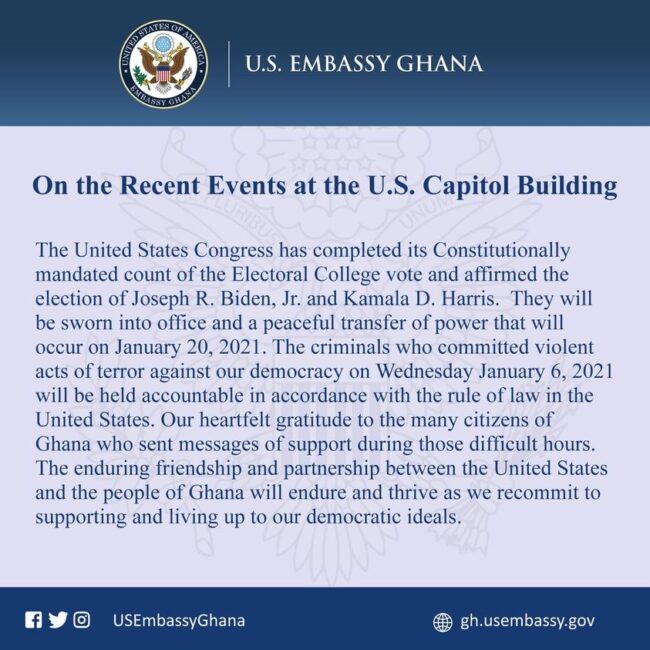
No one would’ve imagine such a notice from the U.S. Embassy in Ghana four years ago! “Our heartfelt gratitude to the many citizens of Ghana who sent messages of support during those difficult hours”? Wow!
Which is worse: being called shit hole or being shitty? It was America’s shitocracy that christened African countries as shit hole. But neither shitocracy nor shit hole is good enough for Africa or America. I have substantial interest in the prosperity of both peoples on both sides of the Atlantic–and so does the whole world stand to benefit. So upward and onward with godly, principle-centred, values-based, effectual leadership for the benefit of our peoples and to the glory of God. No more shit–shit holing, shit hollering or shit bombing. We were made for so much more than this.
Africa! America! African-Americans, arise, clean up and shine! Let our worst years be the last four; and our worst days among the last four too.
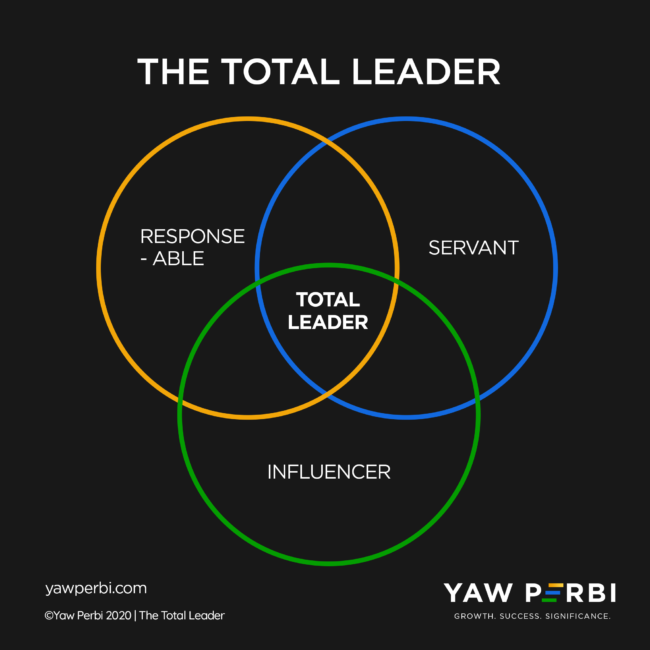
All these politicians are falling over themselves just to SERVE us?
I doubt it. I am skeptical that all these politicians are falling over themselves just to serve us, we the people. After a couple of decades of being a student of leadership, including a Masters in Global Leadership, I came to this simplicity at the far end of complexity that leadership is basically response-ability, service and influence. A total leader is and does all three. But even service has different degrees.
A few years ago some people were very cross with me after I mentioned on a live television interview on Good Evening Ghana that the then Ghanaian president wasn’t much of a leader (in terms of influence). He was very response-able, no doubt. I knew that quite well personally since we used to live in the same residential area and attended the same church. The honourable gentleman was a great servant as well–even as vice-president he was still volunteering to do such ‘menial’ tasks in the community. Such a role model in humility. But his charisma and ability to make things happen in and through others (influence) left much to be desired.
Of course there are those who are great public influencers but can’t even be response-able in their own marriage or toward their children. Such incomplete leaders are asked by the lawyer-turned-preacher, Paul, in the ancient texts, not to vie for leadership in the church. Here is the rhetorical question the trained lawyer poses: “for if someone does not know how to manage his own household, how will he care for God’s church?” A total leader is response-able, serves and influences. Now a focus on servanthood.
SERVANT-LEADER TAUTOLOGY
Ideally, the term ‘servant-leader’ should’ve been tautological as a leader necessarily must be one who serves. Unfortunately, more often than not, it isn’t so. Leadership is often anything but service. In fact, leadership is so much more synonymous with influence that when Robert Greenleaf introduced the term servant-leader around 1970 he literally mean servant-influencer. Here’s what he says in his The Servant as Leader essay back then:
The servant-leader is servant first. One wants to serve first; then one aspires to lead [influence]. This is sharply different from one who is leader [influencer] first, perhaps because of the need to assuage an unusual power drive or to acquire material possessions. A servant-leader focuses primarily on the growth and well-being of people and the communities to which they belong. The servant-leader shares power, puts the needs of others first, and helps people develop and perform as highly as possible.
THE MYSTERY OF MINISTERS
On a recent Lions Inspire Cubs hangout with children (7-14 years) to introduce them to leadership early, some of the cubs literally gasped when they heard me say that the ministers of state that throw their weight around are actually our servants. “Whaaat?!” Yes, minister is the same word as servant. Who could blame these children, for they have hardly seen as humble servants neither the ministers in politics nor ministers in pulpits. I often quip that if I ever became president of a nation I would change the term ‘ministers of state,’ in order to hear it afresh and for shock effect, to ‘servants of state.’
The last couple of months have been a heated political season on both sides of the Atlantic, particularly with my neighbours to the south (the United States border is barely 45 minutes from where I live in Montreal) and in my homeland Ghana. As I’ve seen the passion and commitment in the campaigning, counting of votes, recounting of votes, challenges in court etc. I can’t help but ask: All these politicians are falling over themselves just to SERVE us, we the people? Perhaps a very tiny fraction but largely no; it is mostly to serve their parochial interests. Even for those response-able influencers who are genuinely laying themselves down to minister to us as servant-leaders may I ask: what kind of servant will they be?
SERVANT? WHAT KIND?
Just as “love” is just “love” in English but has at least four variants in the Greek, the ancient Hebrew text is rich with a variety of words for “servant.” Four of these different hues of servant are Ehbed, Abad, Sakyir and Sharath. Let me explain.
1. LOVE SERVANT (Ehbed): This type of servant is totally sold out to those (s)he serves, not so much out of obligation and duty or for financial compensation but pure love. The Hebrews of old were not allowed to enslave their own. If any of their own people—Hebrew men or women—however sold themselves to someone (usually out of dire socioeconomic hardship) they were to serve their fellow Hebrew employer only for six years maximum. In the seventh year they must be let go free, liberally loaded with gifts of livestock, grain and wine. But there was a caveat: “…if your servant says to you, “I do not want to leave you,” because he loves you and your family and is well off with you, then take an awl and push it through his earlobe into the door, and he will become your servant for life (you may read the entire text here). The love servant is one at the complete disposal of the person(s) they serve out of love. Are you (or those you’re voting for) at the complete disposal of the people out of love?
2. SACRIFICIAL SERVANT (Abad): This one has given up a lot to serve. They are characterized by complete sacrifice. This is typically a servant who gives up personal rights, including inheritance, in order to work in the fields or tabernacle (see Numbers 18:7 and 23). The Levites of old were abads. As The Maxwell Leadership Bible puts it, “in a similar way, leaders must sacrifice their rights and stay surrendered to the cause.” Are you this kind of sacrificial servant-leader?
3. HIRED SERVANT (Sakyir): This is the quintessential ‘paid professional.’ In other words, a ‘hired hand.’ Irrespective of what they do, there is a clear understanding that they are hired per hour/day/week/whatever and will receive due compensation. Whether it is fair wages or not is not the object of this discussion; their service is paid for. Remember the love servant conversation above (under ehbed)? When a Hebrew sold themselves to work for another Hebrew they were to be treated as hired hands and then contract automatically ended after six years. It is after this they can choose to become a love servant (see Leviticus text). Unfortunately, the closest thing to a servant I see with many ministers of state and church alike is that of a ‘paid professional’. And you know corporate leaders are not there to serve either when they pay themselves fat salaries and juicy bonuses on the backs of suffering employees, even when their companies are struggling for survival! It’s the money and the trappings of the position that is the draw, not love (ehbed) or sacrifice (abad).
4. MENIAL SERVANT (Sharath): This is the down low of service. This is the most beautiful when done not because the servant-leader has no more nobler service to do but a choice to go down low for the sake of raising the people/mission up high. Sharath is the Hebrew word used to describe Joseph’s servanthood in prison (see here) and Joshua’s attendance to Moses as his aide (see Exodus text). A true leader must serve the people and the cause, irrespective of how down low the role may be. By the way, this same Sharath word in certain contexts can stand for worshipper.
MODELS: ANCIENT & MODERN
Politicians like Nelson Mandela are too few. I remember as a boy when he was released from prison in February 11, 1990 after 27 years! The whole town where I lived erupted with joy and the sound of cars honking was deafening. Mandela sure had influence–he was a leader. Of that day of freedom he said, “As I walked toward the prison gate and was among the crowd, I raised my right fist and there was a roar. I had not been able to do that for 27 years. It gave me a surge of strength and joy.”
But you know what else he had? The spirit of servanthood. That same evening when he spoke to a large crowd at the Grand Parade in Cape Town, he said, “I stand here before you not as a prophet but as a humble servant of you, the people. Your tireless and heroic sacrifices have made it possible for me to be here today. I therefore place the remaining years of my life in your hands.” I don’t know about you but I can’t help seeing an ebed, abad, sakyir and sharath all wrapped up in one in the man, his words and works–from prison to president.
The ultimate example of leader as servant is the greatest leader who ever lived, Jesus Christ. He called himself ‘Son of Man’ and did not just ‘talk servanthood’ but walked the talk. Anyone who could teach as he did and perform miracles and draw crowds of 15,000 some two millennia ago without social media sure had influence. It is he who called his followers who were jostling for political power, to sit at his right and left in their perceived imminent government of Jesus, and said to them:
“You know that those who are regarded as rulers of the Gentiles lord it over them, and their high officials exercise authority over them. Not so with you. Instead, whoever wants to become great among you must be your servant, and whoever wants to be first must be slave of all. For even the Son of Man did not come to be served, but to serve, and to give his life as a ransom for many” (Mark 10:42-45).
I can’t speak for leaders of other faith persuasions but for Christ-followers there is no choice but to love and live and lead like the ultimate servant-leader. Paul writes, “In your relationships with one another, have the same mindset as Christ Jesus.”
CONCLUSION
I initially wrote this piece with a holier-than-thou disposition thinking I was a reasonably good servant-leader myself only to get my bubble burst by my dear wife who gave me painful feedback that I needed to hear: “At home you are more like a boss-servant–a boss who tries to serve. You serve alright but only when you want and how you prefer to.” Ouch! I’m eating humble pie right now.
In the words of my mentor John C. Maxwell, “Leaders must never forget that God calls them to serve. If our Lord [Jesus] could wash His disciples’ feet as a sharath, then how could we frown at becoming an ebed?” So you too, take a long look at the list of four servant types above and a good look in the mirror: which kind of servant are you? Then linger awhile over the lengthy list of those longing for your vote and see whether they are preoccupied with status, salary and stuff or serving. True leaders serve their people towards their purpose; not their parochial interests. I am a recovering boss-servant.
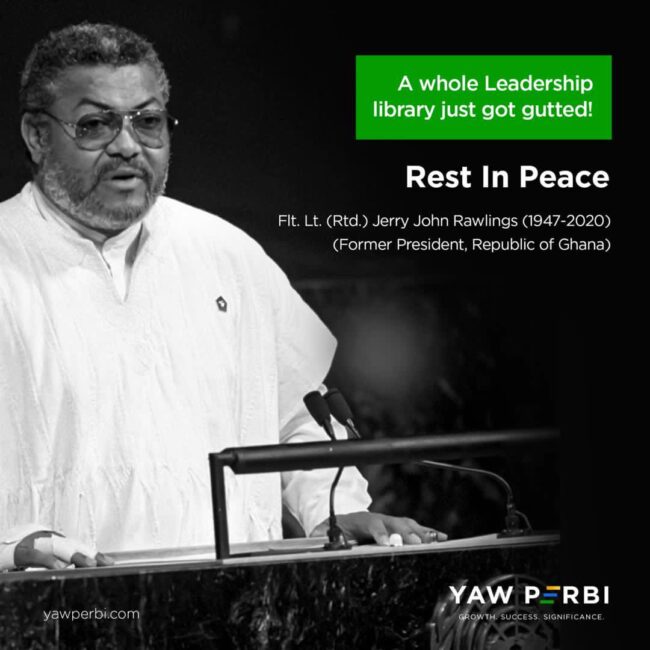
Oh, J J and the “Revolution”
While I hope Ghana’s former president Jerry John Rawlings does Rest In Peace, his passing has evoked many memories and a slew of strong sentiments–the good, the bad and the ugly. My father was Chief Accountant of the Social Security Bank at the time of J.J.’s ‘revolution.’ I have often touted my dad’s integrity. Here’s one of his recent reflections on how his integrity and God’s grace saved his skin during the days of the ‘revolution’, quite literally.
After the apparent unfinished business in 1979, JJ came back onto the public scene by ousting President Hilla Limann on 31st December, 1981. The mindset was people were corrupt; more corrupt than the public acknowledged, and far more widespread.
Soldiers entered our premises where we were staying, at a place called Pig Farm, in Accra. Word must have gone somewhere that our landlady Mame Boatema was hoarding cloth. Her trade was selling cloth at Makola, and there was a concept called “ hoarding”: some sellers used to keep some of the items for sale away from public view, partly in order to create shortages and hence sell what they had at higher prices, and partly, on a much lower scale, in order to pass them on to their favorite patrons and customers. It did not matter whether the things in your possession were legitimately acquired by you or not; if the quantity constituted more than a certain perceived number, you were branded as hoarding, and you suffered consequences. Consequences; various consequences, from outright seizure of the items, to sometimes seizure plus beatings.
On this evening, we had closed from the office and were home when all of a sudden soldiers entered our house. We were then occupying the lower floor of a two-storey building, Mame Boatema the wife of the landlord occupying the top floor. Apparently the soldiers had climbed up, done their search, found nothing and upon descending opened our front door without knocking and entered. Ma gave them a questioning look; I signaled to her to keep calm. They went to every room, found nothing of what they suspected, and left.
When they left, Mame Boatema went to the entrance of the house and shouted to all who were in hearing range, and somehow addressed to neighbours across the road whom she suspected may have sent false information to the soldiers that she was hoarding cloth, how disgraceful they had turned out to be, seeing that nothing untoward was found in the search.
That was just one domestic scenario. There were several in several places, many receiving beatings etc. Soldiers were all over the place, with an agenda they only knew, but mainly looking for “ enemies of the revolution”: namely people who were profiteering.
I was then chief accountant of the Bank ( SSB), one of the departments under my purview being the Stores. SSB was a very popular bank those days. It had been set up by the late Dr Appiah as a subsidiary of the national pension institution SSNIT, and was intended to help fill some identified gaps in the banking industry. Its department called Consumer Credit Department specifically set up to offer workers loans to buy consumables – fridges, freezers, cookers etc- was very popular with workers. The inflation in the country was not only in double digits but also the changes were so rapid that workers were no longer able to source loans easily to buy their needs. Members of staff felt very much appreciated by members of the public- and apparently also envied and hated by some – notably those who could not access the credit for one reason or the other.
Another aspect of SSB’s uniqueness was its opening of cocoa branches. These were new branches at cocoa farming and buying centres to assist cocoa farmers offer their cocoa sales receipts to the Bank for cash/credit. Prior to this, hard-working cocoa farmers after harvesting and selling their cocoa would only be given sales receipts which they had to hang on for very long periods of time and at the mercy of the traditional banks which were not many to start with, nor operating in thick rural areas. This made the Bank also very much appreciated by cocoa farmers.
In addition to this, warehousing finance whereby importers of goods, usually consumables, could access funds from the Bank usually to finance customs and clearing charges of imports by depositing the products in the Bank’s warehouse and have them released in bits based on how they were selling the items and paying the credit in installments was a very welcome initiative in banking.
The Bank’s warehouse was located at the North Industrial Area in Accra, while the Head Office where my office was was at Kokomlemle. On this occasion, I was told that soldiers had gone to the Warehouse and beaten one of the storekeepers. I wondered why, but almost immediately added “ If he did not do anything wrong, would they beat him? Maybe they asked to open the gates for them to see what was inside and he refused.” Little did I know that I was soon to eat back my own words later that night: being beaten before being heard.
People mingled around the frontage of the Bank wondering what was going on; it was near closing time, and I had also closed and joined the rest of the staff in wonder. Before long a military vehicle Pinz Gauer pulled up and with a couple of soldiers and policemen at the back drove up to the front of the Bank. While we were all at a loss as to what was up, I noticed I was pointed out and signaled to approach the vehicle. A soldier asked whether I would be able to answer some questions on the items in the warehouse and I confidently said “Yes.” I was asked to climb into the vehicle.
It was obvious it was most probable I was not going to drive home myself in my car that evening so I gave my car keys to one of the staff I identified and climbed in. We drove off, not knowing where they were taking me. We first went to a base near 37 Military Hospital, sat in the vehicle, wondering what was next. After a long time, and with dusk well settled and darkness in the atmosphere, we drove on, me little knowing where the destination was.
While going, some of the soldiers and policemen were exposed their beef as they expressed their disappointment with not being able to get some of the consumer items when they applied. I kept quiet, not being the manager in charge of that credit, but also being very much aware that no amount of defence would assuage their bitterness and anger.
Soon we were to turn into Burma Camp, and deeper into what I later got to know was Gondar Barracks. “Meat come! meat come!” were shouts that greeted us from soldiers at the camp, and apparently a couple or so other Pinz Guarers already parked ahead of us. “Meat,” as in reference to people who had been sent to the barracks who would be beaten. The prospect of beating civilians was being likened to enjoying some beef or similar juicy meat. I saw soldiers lifting their boots into the bodies of people, including their groins and any other part of the body they could reach with their legs.
Sooner or later it came to my turn. There was an office not far from the road where the vehicle had parked. When I was called, or rather signaled to enter the office, I descended from the vehicle and I heard one of them ask me to remove my eye glasses. Before I knew what was happening, two hefty slaps landed on my cheeks from behind me. I tried to make my way to the office, somehow convinced that there would be some respite there. It was like fighting unknown and unseen forces. While I tried hard to force my way to the office, I felt being restrained with some bearing. Eventually I made my way to the office.
An officer seated at a table asked of my designation . When I told him, it turned out that I was not one they were looking for. They asked me to go back to sit in the vehicle to be driven back. While waiting in the vehicle, some of the soldiers who had become somewhat apologetic said some people had even lost their lives so … apparently to console me that my fate could have been worse. When we departed to be sent to 37 area to find our way home, I opted to get off as soon as we exited the Burma Camp, and fortunately found a taxi that took me home to Pig Farm. Those were days of curfew: no one was expected to be on the streets from 6 pm to 6 am, later to be adjusted to 9 pm to 6 am.
A member of my staff Aggrey Fynn, himself a retired naval officer who was Stores Manager had also been sent to the barracks. I could only pray as to how he was going to be treated. Nursing pains in the cheeks the next few days and a red eye seemed a small price to pay for what was in store for the country, unknown to many, including even those who appeared to be “ in charge.”
Bank forgeries three years later and how some civilians were shot to death and my escape from it is another story altogether.
Reindorf B. Perbi
17 November, 2020

His Hair and Our Beards: Trump, a Global Leadership Crisis and our Children
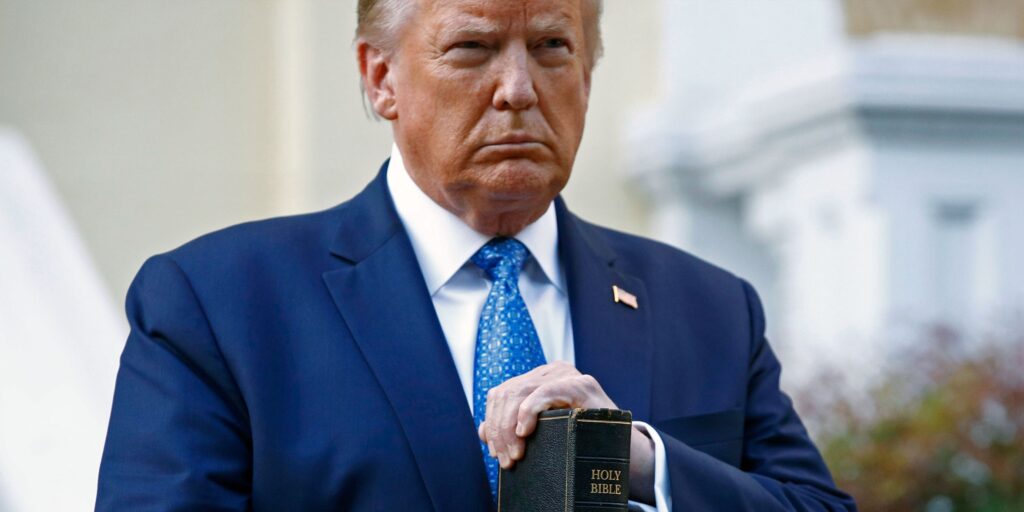
President Trump propping up a book that could flip his life and leadership if he would read and apply it. Same is true for us all! (Photo credit: The New Yorker)
“Stopping Trump is a short-term solution. The long-term solution, and it will be more difficult, is fixing the educational system that has created so many people ignorant enough to vote for Trump.” (Andy Borowitz, a satirist)
Let me begin with a disclaimer: I do not subscribe to the notion that everyone who voted for Trump is ignorant. That would be an unfair characterization. Politics is more nuanced than that. I say there are at least 3 Ps that go into one’s choice, none of which is perfect in any political party and hardly are all three aligned with what is Biblical: the PERSON (as in flag bearer), the PARTY and the POLICIES.
Having said that, how did the most powerful nation in the world end up with such a leadership crisis? I’m not just talking about the nail-biting U.S. electoral college vote count last week and the current situation where a winner has been projected but the incumbent hasn’t gathered what it takes to concede and congratulate. I speak of four years ago when America had to choose between two wannabe leaders of the free world both of whom the electorate had serious reservations about! America was caught between the red devil and the deep blue sea.
And the last four years have portrayed nearly everything I’ve been taught that leadership is NOT exhibited by the man in the White House. Is it competence in inspiring confidence about the Coronavirus pandemic and quenching it or a character of what is good and right and true or care and respect for ‘the other’? Competence, character and care constitute the DNA of leadership. Of course Trump did do some good things. I have even admired his non-political-correctness and tough skin in forging ahead buoyed by the courage of his convictions (no matter how misinformed I think they might be sometimes). By and large, however, I have had to repeatedly tell my children too many things about Trump that leadership is NOT.
THE VAN JONES MOMENT
When I saw Van Jones weep on television that as a parent the defeat of Trump and the elevation of Biden is a testament to the fact that character matters in life and leadership, I very much identified with that. Character matters. Truth matters. Decency matters. And one would think the white evangelical church in America would know better than a journalist.
If the one country that has produced the most world-impacting heads of states, Nobel laureates (390 of them; the UK which is next is at 135), stellar entertainers and astounding professional athletes could face such a gaping leadership crisis then the rest of the world had better watch out. In my Twi language from Ghana, there is a saying that when you see your neighbor’s beard on fire, you had better quickly fetch a bucket of water and place it beside yours (well, hopefully after you’ve helped him doust his!)
OF SHITTY STORIES & SHIT HOLE COUNTRIES
The S word is one that isn’t in my vocabulary. Permit me to get into the gutters in this little stretch so we both appreciate the abyss leadership sunk into these last four years. When Trump was elected I was hopeful. My family’s explanation to a United States border agent that we were crossing over from Canada to upstate New York to check on our investment property had been described by this kid in the border cage as “Such a Shitty Story.” When I wrote about that in January 2017, I was hopeful that a Trump presidency would catalyze the noble dreams Martin Luther King Jnr. had for his four little children (and my six) and not turn into the nightmare many feared. The latter has happened. Blacks still can’t breathe in 2020, George Floyd’s slow slaughter being the epitome of that.
As one born and raised in Africa I have long experienced firsthand that “everything rises and falls on leadership.” Whether as a young medical doctor in Ghana seeing patients die who shouldn’t have or as a United Nations peacekeeping soldier in Cote d’Ivoire beholding with my own naked eyes the ravages of war, there is no other one word that summarizes all that’s wrong with my continent as ‘leadership.’ The sad socioeconomic state in the midst of abundance earned us the disparaging title of “Shit hole countries” by President Donald Trump who ironically has gone ahead to look, sound and act in the very manner people who have misled, unled, disled Africa have.
START EARLY
Leadership is a sacred trust. Twenty years ago I was so concerned that leadership knowledge and mindset, character and skills be acquired early that I co-founded The HuD Group to intervene at the youth level and change the African narrative. Nearly 20 years later I am still convinced that leadership development and training must start early but even earlier: with children. And it begins by calling them “cubs” who will grow into lions and not “kids” who will grow into billy goats gruff (or the trolls in that fairy tale, for that matter LOL).
While at my executive education company that bears my name, YAW PERBI, we’re intervening at the C-Level, Perbi Cubs Library Services is beginning from the very roots: with children and from our homes and schools. I’ll tell you why we launched the Lions In Training (LIT) Track at Perbi Cubs only a couple of weeks ago (although we’ve been dreaming about this for a long long time).
WHY LIT?
LIT is the collective attempt of Perbi Cubs and parents who are preparing the next generation to meet the great challenges and opportunities of the twenty-first century and thrive! The LIT track is to help groom our Cubs into holistic Leaders (Lions). The Perbi Cubs reading community knows that the future of our reading Cubs is promising because of the world of opportunities opened to them every day as they open books to read. For sure, readers are leaders.
Reading, however, is necessary but not sufficient.In this light, Perbi Cubs desires to partner parents to nurture Cubs in relevant soft skills that will take them places and form them into young well-rounded leaders of great impact. Research shows that a leader is developed over the entire course of their life: from womb to tomb. It is never too late to start teaching, learning and applying leadership skills to everyday life.
Next, I’ll show you HOW we’re going about it. For now remember, Trump’s orange hair is on fire; we all had better get a bucketload of godly, effectual leadership to sit by our beards!
*NB: YAW PERBI serves as consultant, coach and trainer for Perbi Cubs and is not involved in the day to day management of this groundbreaking social enterprise. If you require YAW PERBI’s assistance in executive coaching, management consulting or leadership training reach out to yawperbi@gmail.com.


